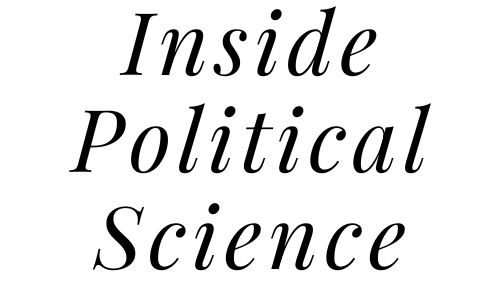
Political parties are ubiquitous in modern democratic societies. They play a pivotal role in shaping political landscapes and influencing governance. But why exactly do these organizations exist? Understanding their purpose is fundamental to comprehending the dynamics of democratic politics.
In this article, we delve into the core reasons behind the existence of political parties. From representation to policy formulation, from mobilization to accountability, each aspect contributes to the essential functions they serve in democratic systems. Let’s unravel the rationale behind the existence of political parties.
Why Do Political Parties Exist?
#1. Representation of Diverse Interests
Political parties exist to represent the diverse interests and perspectives present within society. In democratic systems, citizens hold a wide array of opinions, beliefs, and concerns. Political parties act as vehicles for aggregating these varied viewpoints into coherent policy platforms. By championing specific agendas and advocating for particular constituencies, parties ensure that the multitude of voices within society find expression in the political process. In this way political parties contribute to the democracy.
#2. Facilitation of Political Participation
Another crucial function of political parties is to facilitate political participation among citizens. Parties serve as entry points for individuals seeking to engage in the political arena. They provide avenues for ordinary citizens to contribute to decision-making processes, whether through membership, activism, or candidacy. By mobilizing supporters and organizing campaigns, parties encourage broader civic engagement and enable individuals to have a meaningful impact on the direction of governance.
#3. Structuring of Political Competition
Political parties structure and facilitate the competitive nature of democratic politics. In pluralistic societies, where numerous interests coexist, parties serve as the primary vehicles for contesting elections and vying for power. Through the formation of distinct platforms and ideologies, parties delineate the choices available to voters and offer competing visions for the future. This structured competition fosters a dynamic political environment, wherein parties vie for popular support and strive to distinguish themselves from their rivals.
#4. Formulation of Public Policy
One of the core functions of political parties is the formulation of public policy. Parties develop comprehensive platforms and agendas that outline their proposed solutions to societal challenges. Through debates, negotiations, and consensus-building processes, parties craft policies that reflect their ideological orientations and address the needs of their constituents. By presenting coherent policy alternatives to voters, parties offer a framework for evaluating competing visions of governance and inform electoral decision-making.
#5. Mobilization of Voters
Political parties play a crucial role in mobilizing voters and galvanizing support for their respective agendas. Through grassroots organizing, outreach campaigns, and mobilization efforts, parties seek to rally supporters and maximize voter turnout on election day. By articulating compelling narratives and mobilizing around shared values, parties inspire citizens to participate in the electoral process and exercise their democratic rights. This mobilization function is essential for ensuring the legitimacy and responsiveness of democratic institutions.
#6. Accountability and Oversight
Political parties play a crucial role in ensuring accountability and oversight within democratic systems. By organizing themselves into competing factions, parties create a system of checks and balances wherein they hold each other accountable for their actions and decisions. Through mechanisms such as legislative scrutiny, public debates, and media scrutiny, parties scrutinize the performance of their rivals and hold them to account for any perceived shortcomings or failures. This process of accountability helps maintain transparency and integrity in governance, fostering public trust in democratic institutions.
#7. Stability and Governance
Another key function of political parties is to provide stability and effective governance. In democratic societies, where power is contested through regular elections, parties offer continuity and predictability in governance by providing mechanisms for the peaceful transfer of power. Through their organizational structures and institutional frameworks, parties ensure that transitions between different administrations occur smoothly and without disruption to the functioning of government. This stability is essential for fostering economic development, social cohesion, and the rule of law within society.
#8. Representation in Government
Political parties serve as vehicles for the representation of diverse interests within government institutions. Through the electoral process, parties compete for seats in legislative bodies and executive offices, with the successful parties gaining the mandate to govern and implement their policy agendas. By forming coalitions and alliances, parties negotiate the distribution of power and influence within government, ensuring that the interests of various constituencies are represented in decision-making processes. This representation ensures that government policies reflect the preferences and priorities of the electorate, thereby enhancing the legitimacy of the political system.
#9. Expression of Political Ideologies
Political parties provide a platform for the expression and dissemination of political ideologies. Ideologies serve as guiding principles that shape the policy positions and objectives of parties, helping to distinguish them from their competitors and attract support from like-minded individuals. Whether liberal, conservative, socialist, or nationalist, ideologies provide a framework for understanding the world and formulating solutions to societal challenges. Through the articulation of ideological positions, parties offer voters clear choices and foster informed debate on issues of national importance.
#10. Mediation of Conflicting Interests
Finally, political parties play a crucial role in mediating conflicting interests and fostering compromise within society. In pluralistic democracies, where divergent interests often collide, parties serve as intermediaries that seek to reconcile competing demands and find common ground. Through negotiation, dialogue, and consensus-building, parties facilitate the resolution of conflicts and the forging of agreements that accommodate the needs of different stakeholders. This mediation function is essential for maintaining social cohesion and political stability, preventing the escalation of tensions into open confrontation or violence.
Closing Thoughts
Political parties are the cornerstone of democratic governance, serving a multitude of essential functions that underpin the stability, accountability, and representation within political systems. From representing diverse interests to mediating conflicting demands, parties play a pivotal role in shaping the direction of public policy and fostering civic engagement.
While they may face criticism and scrutiny, the existence of political parties remains integral to the functioning of democratic societies. Understanding their role and significance is vital for citizens to navigate the complexities of modern politics and participate meaningfully in shaping the future of their communities.
